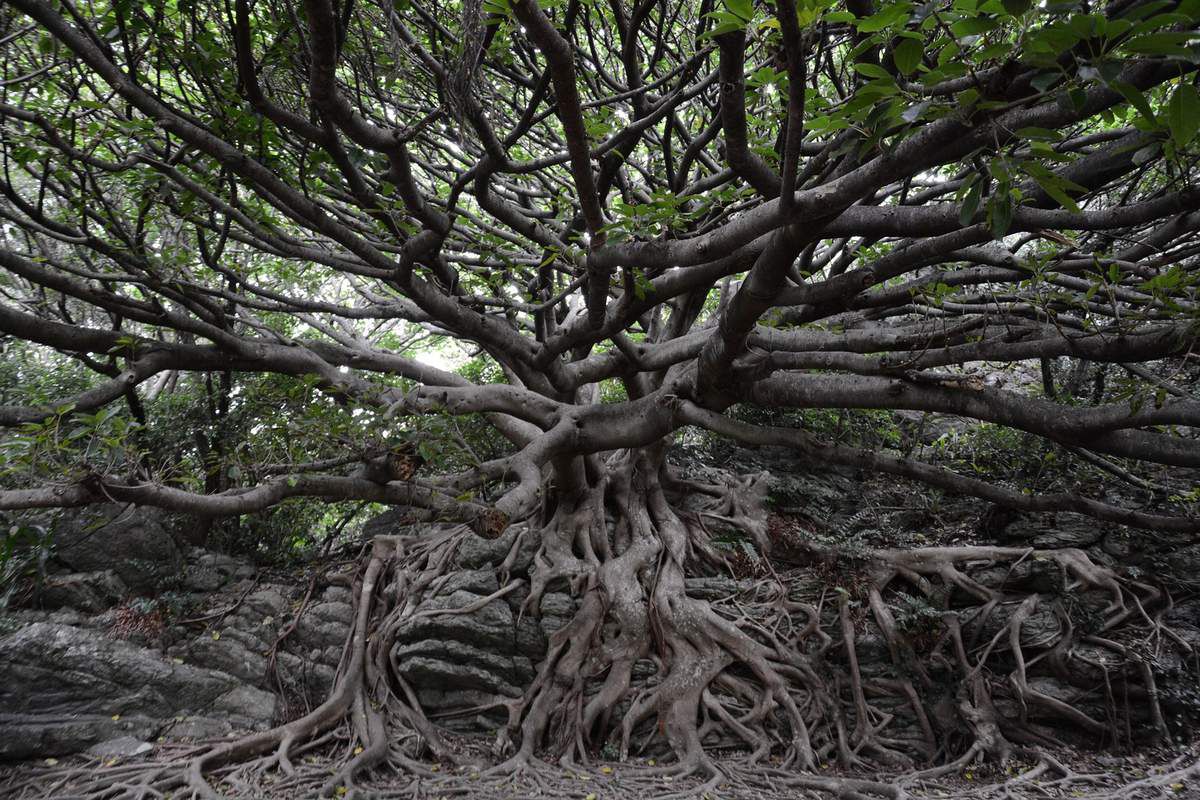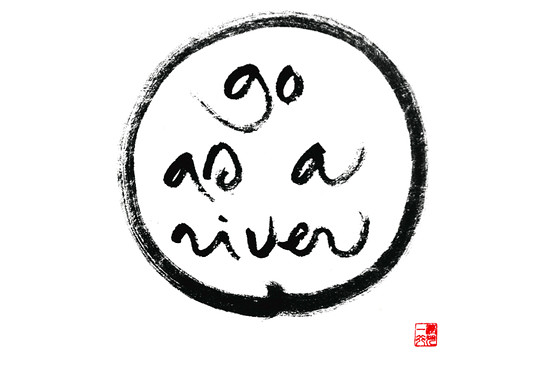Excerpts by Kosmos blog from a dialogue between Duncan Campbell and Paul Ray, via Living Dialogue

Introduction
Coleman Barks, poet and leading American translator of the world-centric poet Rumi, has observed that “we are trying to create a civilization without elders to lead us”. That is not to say that this new civilization – or wisdom culture – will be without elders, but as I take it, only that in these literally unprecedented 21st century times we must become our own elders. Collectively we can do this by recognizing that only through mutually informing and respectful dialogue, between generations, between men and women, between different ethnicities, between different spiritual traditions and approaches, between private enterprise and government, etc. can we collaboratively bring forth a new wisdom culture.
To meet the demands of interpenetrating globalization, peak oil, and global warming, such a culture must be planetary in scope, capable of holding the exploding worldwide diversity in a larger creative and cooperative whole. To do this, we also have to grow up, to mature beyond what Paul Ray in this dialogue describes as the narcissistic, self-centered adolescent economic model that currently dominates in many spheres. We here elaborate on what I have said in many of these dialogues — that we can do this by activating an energizing remembrance of a deeper felt sense of unity that is part of our collective past, together with the individual creativity and innovation of our modern mind, to co-create the new structures and content of a transformed culture. – Duncan Campbell
Dialogue
Duncan Campbell | So Paul Ray, what do you see as some of the challenges going forward? I think you’ve rightly termed our modern civilization, ‘adolescent’.
Perhaps we can define what some of those features are because there’s both positive and negative aspects to the adolescent phase of development and what would be the initiation that we might describe that we are going through as a species into a mature adulthood to create something new and to create a culture that could be enduring, a wisdom culture?
Paul Ray | Willingness to take a longer term time perspective is something adolescents have a hard, hard time with and something corporations have a hard time with and politicians have a hard time with. So we’ve got reward structures put in place in the West and in the industrial urban civilization that are adolescent reward structures. They favor short term perspectives over long term perspectives. One of the things you can say about maturity is that it is a wider, more encompassing kind of consciousness.
E.F. Schumacher who wrote Small is Beautiful also did another book that I really love called A Guide For the Perplexed. In here he updates a medieval concept called adaequatio; ‘is this explanation adequate to the problem?’ is one way the medieval scholastics put it, but the key idea of adaequatio the way Schumacher put it is that the lesser awareness is never able to encompass the greater awareness.
So an adolescent for example has a hard time understanding mature love between adults. Adolescents have a hard time grasping longer time horizons. Adolescents have a hard time understanding how noble purpose could be a life commitment and indeed the adolescent has a very self-centered view point.
One of the great evils of our time is that the corporate community and a lot of the libertarian community wants to insist on the crucial importance of selfishness and self-centeredness as what’s rational and that of course is a very destructive kind of thing in the history of Western culture. Our mutual friend Elizabeth Sahtouris, the evolutionary biologist, talks about the Western culture as the psychology of the weeds which grow very rapidly into disturbed spaces. The weeds are using up resources very rapidly.
That kind of a weedy path of development, once things fill in and become complex and interdependent, is no longer what you want. So the weed mentally is like the adolescent mentally. The fully developed climax forest, which has very, very sophisticated interconnections, is the more mature part and that’s what we’re moving toward. So that much more mature part will have spiritual principles that are things that are in many cases not about ‘up, up, and away into the clear, white spaces’, but about what’s good for all of us? What’s good for all life? That goes right back to our classic notion of what’s the elder concern? Concern for all the children of the world, no one excluded. It’s also accepting change and it’s going after philosophical depth. What we’re looking at here is the idea that there is a new kind of wisdom needed for our time. That’s not trivial, it’s a new kind of wisdom.
Duncan Campbell | And I think even hallowed elders in our time like Joe Campbell recognizing that he was at the end of an era and that indeed the age of the hero and the hero’s journey that he described so beautifully by bringing in and weaving together sources from many traditions around the world, was in a sense coming to an end. That we’re embarking now on something beyond the individual hero’s journey of going off and having the isolated vision and bringing it back into the collective.
Yet there are many of us feel that what is characteristic of this particular next evolutionary leap is a co-creation of the vision that it will be coming through many people together and each person will have a piece of it so that it is a real dialogue and creation of community and a community of people humble enough not to attach to the proprietariness of the particular vision – that they would understand that something larger than all of us that is coming through all of us collectively.
Fuller Dome
Paul Ray | Also we’re not out there to kill dragons, we’re out there to build something new together. What I’d like to talk about is exactly this image – that each one of us cannot imagine the whole of a new civilization. It’s too big to hold in any one mind but each one of us can help build one of the facets of a new civilization. Kind of like a Fuller Dome or a bee’s eye which has thousands and thousands of facets. In fact I’ve done brain storming with citizen groups where they clearly see this after awhile is that no one of them can encompass the whole complexity but together we do indeed invent something that’s an image of a desirable future, an image of a new guiding story for ourselves. That’s quite remarkable, you can get that sense of having to create it together and having to trust so that all of us together will do the job that in fact we are all needed now.
Duncan Campbell | The kind of either/or reductive mentality that was at the core of scientific revolutions in the West that allowed us to deconstruct if you will certain material reality and then reconstruct it in ways that invented the steam engine and the airplane and the laws of physics.That kind of the use of rational divided consciousness to promote inventiveness is now something that has become in a sense a kind of trap and that we can go beyond that in a more poetic and more evocative way of letting revelation if you will come to us out of a larger, alive universe rather than continue to try to master in a reductive way a universe seen to be in the modern mind as inert and unenchanted and something that we can fashion for our own benefit. So in a way it really I think at it’s core involves a kind of remembrance of a deeper, spiritual unity if you will. That is part of our collective past as a species.
Paul Ray | That’s right. Looking for the spiritual level as a collective enterprise means that you probably don’t have just one prophet either, just as you don’t have just one hero leader who will do it all in our behalf. You don’t have just one prophet, you have the ability to get guidance and perceive things in a prophetic mode as something that can get passed around the room almost. That leadership is present in the room, that’s what hierarchy as an idea is about. That’s what it is when you really go into a community that’s got a spiritual base, is that you start realizing that it doesn’t just all hang on the guru and his insights or the prophet or on the unique holy book.

Calligraphy of Thich Nhat Hanh
One of the things that I thought was fascinating that came up recently in the new, engaged Buddhism of Thich Nhat Hanh is that, “Maitreya Buddha of the future is the collective Buddha, not a single individual Buddha.” That’s a little glimmer of what’s starting to emerge with the new guiding story of our time. And it’s not going to be handed to us by the ancestors, it’s not going to be handed to us by a hero author writing in a garret somewhere but we are going to create that new story ourselves. It’s going to say something like this: “humanity is all one people living on small, fragile planet. We have to care for our home, and we have a wonderful diversity of spiritual insights and arts and foods and philosophies and we should be celebrating that rather than fighting over it.”
Every culture has a facet of some larger truth that we can’t comprehend until we hear from all of us. The real spiritual center will hold because it’s everywhere. That unthinking modern production and consumption are rather immature responses to the world because we are deprived of our real satisfactions and other people are struggling with physical deprivation because of it. So the idea that maybe if some of us are oppressed, all of us are going to turn out to be oppressed together. The inner life is going to have to be more satisfying, much more important, so that the commercial life doesn’t destroy the planet. The technologies are only good if they are placed in a wisdom context rather than a context of maximizing profits and production and so on.
I predict we’re going into a time the next 20 years of crisis, upon crisis, upon crisis. That we are going to be looking at global warming that is going to be triggering this whole series of crisis of disease and water shortages and outbreaks of extreme weather, droughts, and floods and monster storms across the Atlantic with hurricanes and the like.
In that time of instability, what happens of course is just like a rite of passage, initiation for an adolescent, part of the old ego structure has to fall apart and a new more mature ego structure has to happen. First the old ego has to get stripped away and then you get to be nobody and nothing for awhile. You get to lose some of the old highly integrated structures before you go to the next level.
Paul H. Ray received a BA, cum laude, in Anthropology from Yale University, and a Ph.D. in Sociology from the University of Michigan. He designed and ran the original survey research that identified the Cultural Creatives, covering 15 years.
Duncan Campbell holds degrees from Yale College and Harvard Law School, and a Certificat from the Sorbonne. He has traveled widely in both industrial and developing countries, engaging indigenous cultures and receiving initiation in a number of traditions in various parts of the world.

/image%2F1152236%2F20191031%2Fob_cdc6f8_hans-peter.jpg)